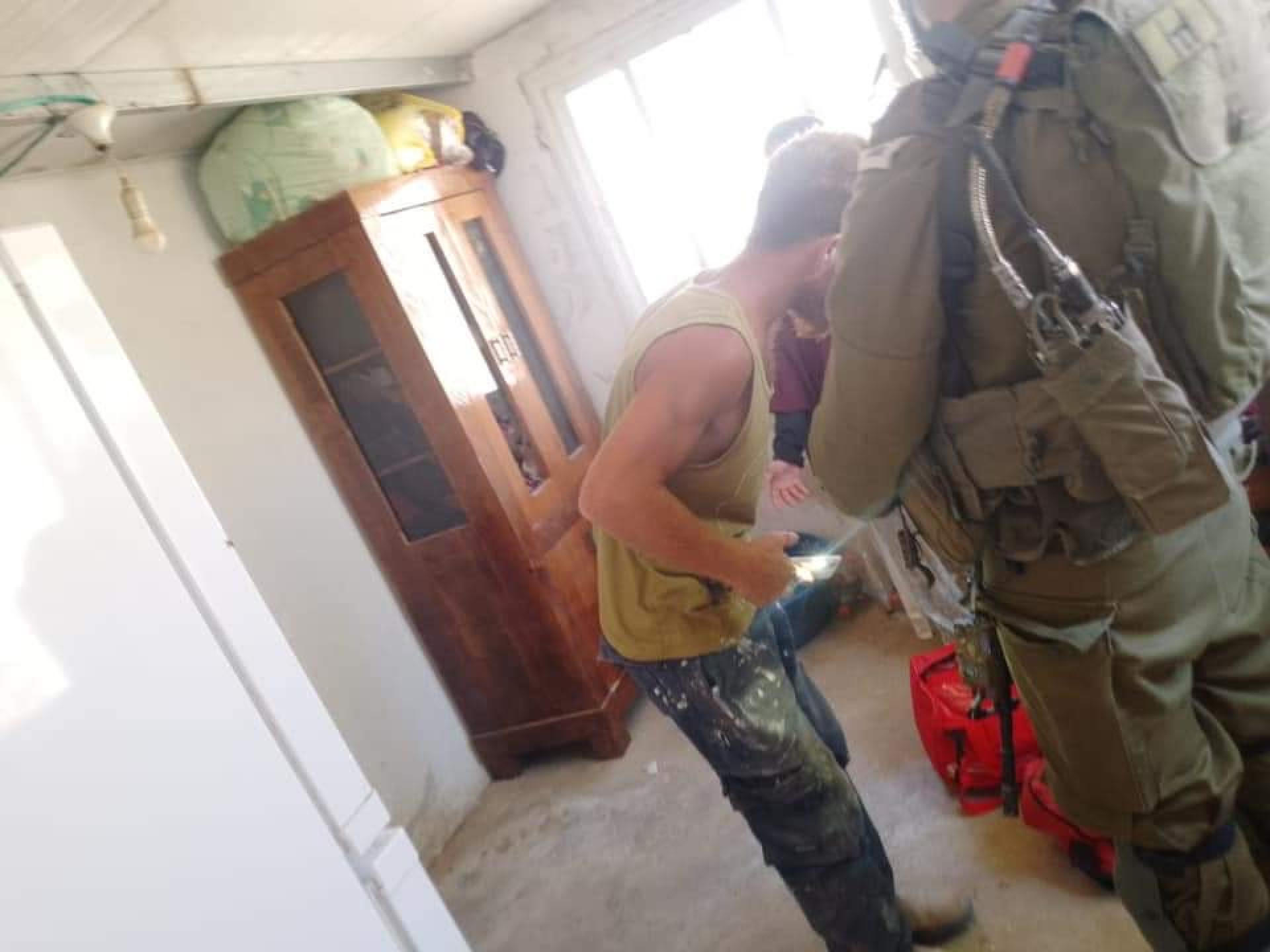Tuba – settlers enter the houses, causing havoc, in the presence of soldiers
On Tuesday, reports were received of an army-sponsored settler invasion of houses in Tuba (neighboring a residential farm). We wanted to hear about it first-hand, but since the road to the village of Tuba requires a front-wheel drive vehicle and the jeep was not available, we went to At-Tuwani to interview the people who were present at the event.
Sitting over a cup of coffee on the balcony of Nasser al-Adara. His son Bassel, who writes for Siha Mekomit, was present at the event in Tuba and even took a picture.
Bassel was unable to attend, but two Italian volunteers from the Operation Dove organization came to be interviewed.
They have come for a few months, live in a house in At-Tuwani overlooking the main road (317). The people of the villages in the area call them for help such as accompanying the shepherds (at this time in the early morning and again towards sunset), and accompanying the children on their way to school, etc. That's how they were called to the event in Tuba.
The volunteer Max says: three settlers, one of them armed with a rifle, came from the direction of the settlement to the houses near the settlement on the eastern slope of the hill and thus were hidden from the access road to the village. The three settlers entered the house of Salah (?) and Ali Awwad. In each of the houses, they started rummaging through cupboards, throwing chairs and shouting at the members of the family. Their faces are open, not frightened by the phones of the members of the house who took pictures of them. The Italian volunteers were called by the Palestinians and filmed everything that was happening. Someone called the army, and then the armed settler left. The army arrived, entered the houses but the soldiers stood aside and allowed the settlers, who in the meantime had finished the pogrom, to march to the extreme house in the village, the one closest to the access road. At the same time, they blocked the way there for the Italian volunteers and even took Max, who was filming, to the military vehicle. There they took his passport and took a picture with their phone. Max claims that they sent the photos to some WhatsApp group. He was not afraid, because he understood that only the police could detain him and the soldiers probably did not call the police. Maybe they didn't pass on his details either, and in the end, they released him. In the meantime, Jewish activists arrived at the extreme house, bypassing the roadblocks placed by the army on the access road to the village on foot.
The incident probably ended when the settlers finished scaring the villagers and left, and the army left as well.
More on Route 317
On the way down to Wadi Radim (which leads to the house of Abu Safi and his neighbour) you see new piles of dirt blocking the dirt road towards Abu Safi, and also the road that goes under the road towards his fields, so that the herds cannot pass.
Above the wadi lies the Mikne Yehuda farm, owned by Israel Kaplan (who harasses Abu Safi): a new dirt road was opened in the southeast direction, bypassing the hill of the farm and continuing towards other areas that he apparently intends to occupy.
Another obstruction is visible on the western side of the village of Zanuta. This dirt road leads, along three kilometres, to Dahariya. The blockade requires the village's vehicles to travel by long and roundabout routes.
Nasser al-Adara tells of another way of harassment from the settlers “school”: they scatter small spikes (the size of 10) on the dirt roads to the villages and cause punctures in the wheels of the Palestinians' private cars and tractors.
Meitar Pass: The parking lot on both sides of Highway 60 is full. Two buses were seen which brought prisoners' families to visit prisons in Israel.

